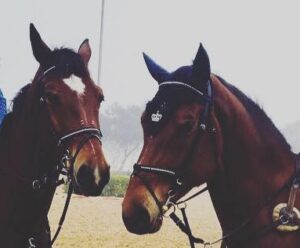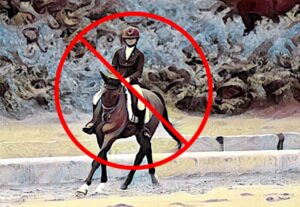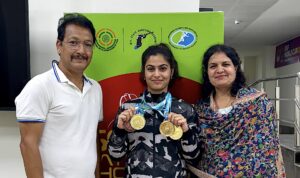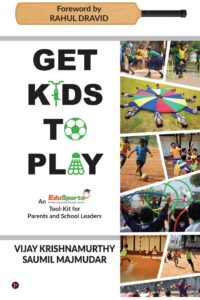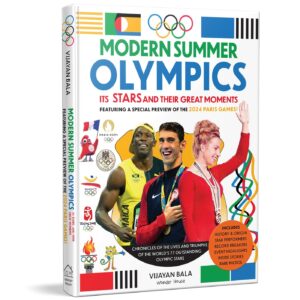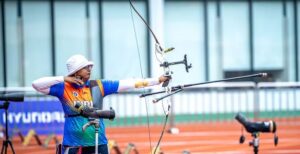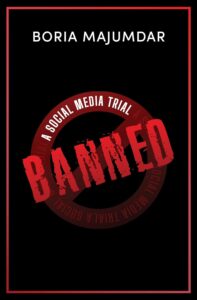
The tussle is out in the open. Or so it seems when you consider the fact that the Indian Olympic Association took the unprecedented step on Wednesday of putting out an unsigned media release, with one quote from its President PT Usha and without a whisper from the Joint Secretary and Acting CEO Kalyan Chaubey.
No less than 24 hours after the IOA-appointed ad hoc committee running the affairs of the Wrestling Federation of India (WFI) released the selection procedure for the Asian Games, the IOA release provided a twist in the tale as far as the composition of the wrestling team is concerned.
That release seemed a knee-jerk reaction to the groundswell of criticism against the decision of the ad hoc committee to offer Bajrang Punia and Vinesh Phogat tickets to the Asian Games. Surely, it was not an attempt to assuage the hurt that young Antim Panghal and Sujeet Kalkal felt when they heard of the ad hoc committee’s decision to back the senior wrestlers without even a fitness trial.
A few hours later, IOA sent a correction, amending a word from its earlier release. Instead of ‘final selection of wrestlers will be made prior to the departure of the team for the competition’, it changed to ‘final assessment of the wrestling team will be made prior to the departure of the team for the competition’. IOA will undertake an assessment of the grapplers’ form and results.
Despite such hair-splitting, the IOA Media Release is indicative of the fact that IOA – at least a part of the leadership – has not agreed with the ad hoc committee decision to let Bajrang Punia and Vinesh Phogat get direct entry to the Asian Games without even assessing their fitness, let alone form, at the moment.
My interest was piqued more by a mention of the criteria for team sport. “The focus will be on selecting sports that have achieved a top 8 rank in Asia in the last one year preceding the Asian Games. This approach guarantees that team sports with a proven track record of excellence and competitiveness in the region get the opportunity to represent India,” it said.
Over the past few days, speculation has been rife about the football team’s fate. With the National Coach Igor Stimac leading a public campaign to supplement the behind-the-scenes parleys that All India Football Federation has been having with top Government officials, there was a buzz that the Ministry of Youth Affairs and Sports would make an exception.
At a time when the composition of the Indian contingent for Hangzhou has not been announced – though the last date for entries by name was July 15 – it defied logic that the IOA should be speaking of selection criteria for individual events and team sport in the Asian Games, unless of course there is an underlying, and perhaps fair, sentiment against the idea of including football.
Why could not the IOA thinktank make these decisions before July 15, the last date for submission of entries by name to the Hangzhou Asian Games Organising Committee? What is to be gained by delaying the release of the final list of entries by name, other than some extra time for some National Sports Federations to try their luck with haggling with Government?
Be that as it may, the larger discussion emerging is about how former athletes cannot seem to come together and pull Indian sport in the same direction. The uncharitable have said they are being manipulated by others. Why does it take just a few months for the differences to be so severe that it causes deep cracks that will need a lot more time to paper over?
There is a sense of despondency in the sports community which believed the arrival of a host of former athletes as the Indian Olympic Association brass. The former athletes themselves are realising that governing the affairs of the National Olympic Committee is a lot tougher than playing the sport at the highest level.
What is it about the Indian Olympic Association that it causes the top two officials to align on opposite sides? In the recent past, Suresh Kalmadi and Raja Randhir Singh as well as Dr Narinder Dhruv Batra and Rajeev Mehta has started off in the same camp but fell apart with time. We are now seeing PT Usha and Kalyan Chaubey, who is Joint Secretary, not being on the same page.
It is easy to imagine that things would not have come to such a pass had the IOA Executive Committee followed the mandate of the revised constitution that it would engage a CEO within a month of taking over. Many sports lovers saw envisioned a golden dawn, ushering in professional governance and administration. As it turns out seven months later, that was just a mirage.
